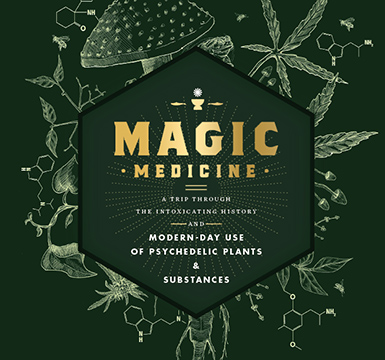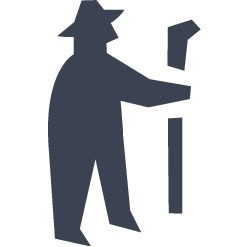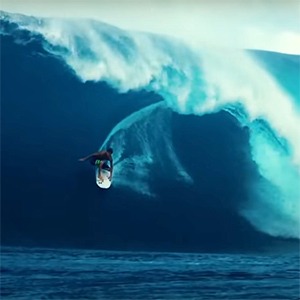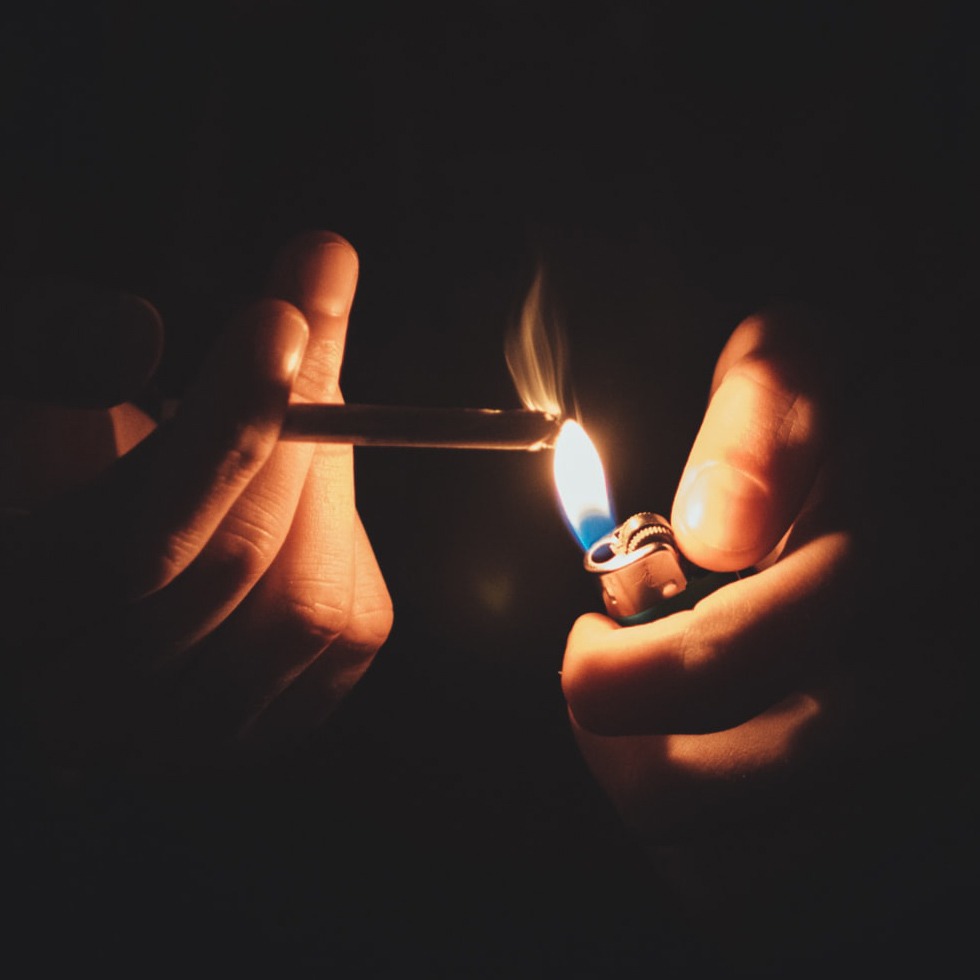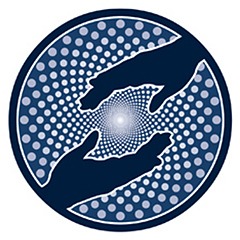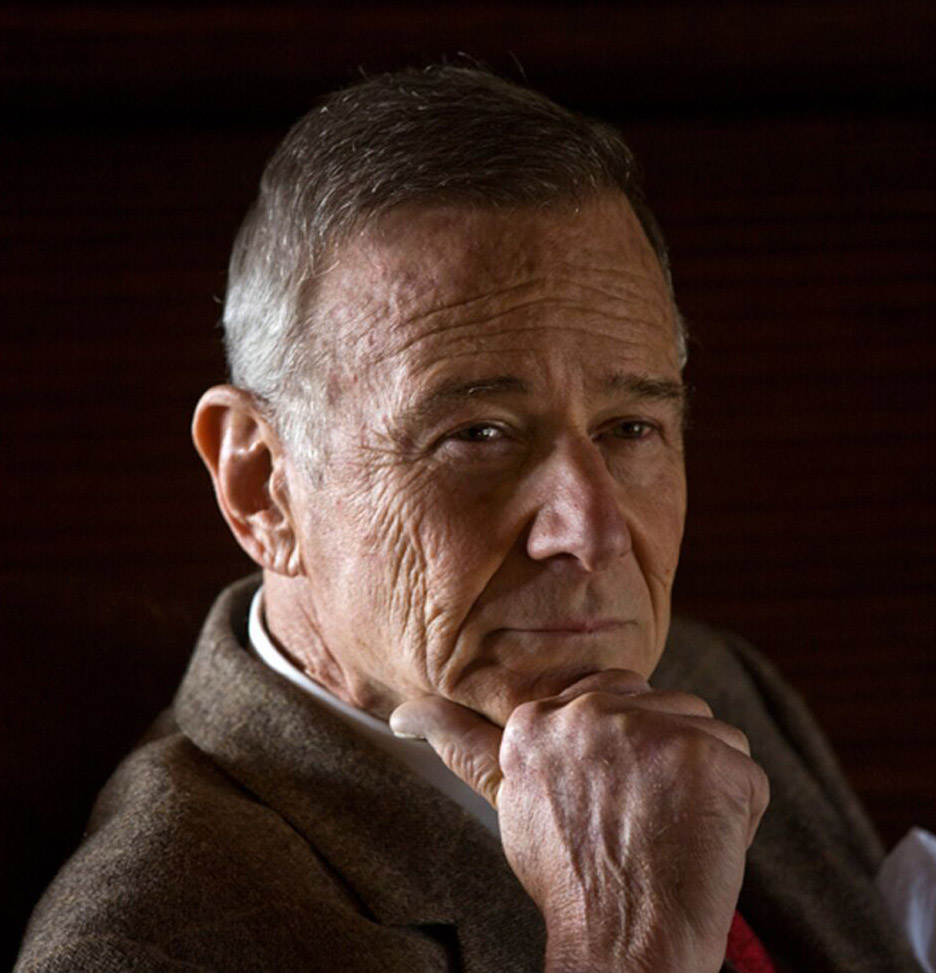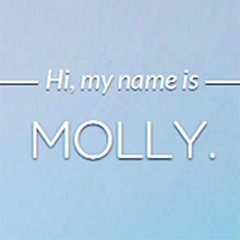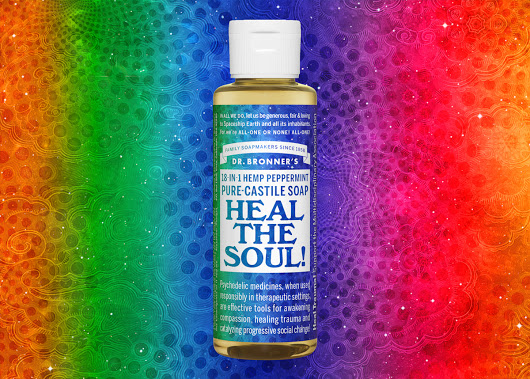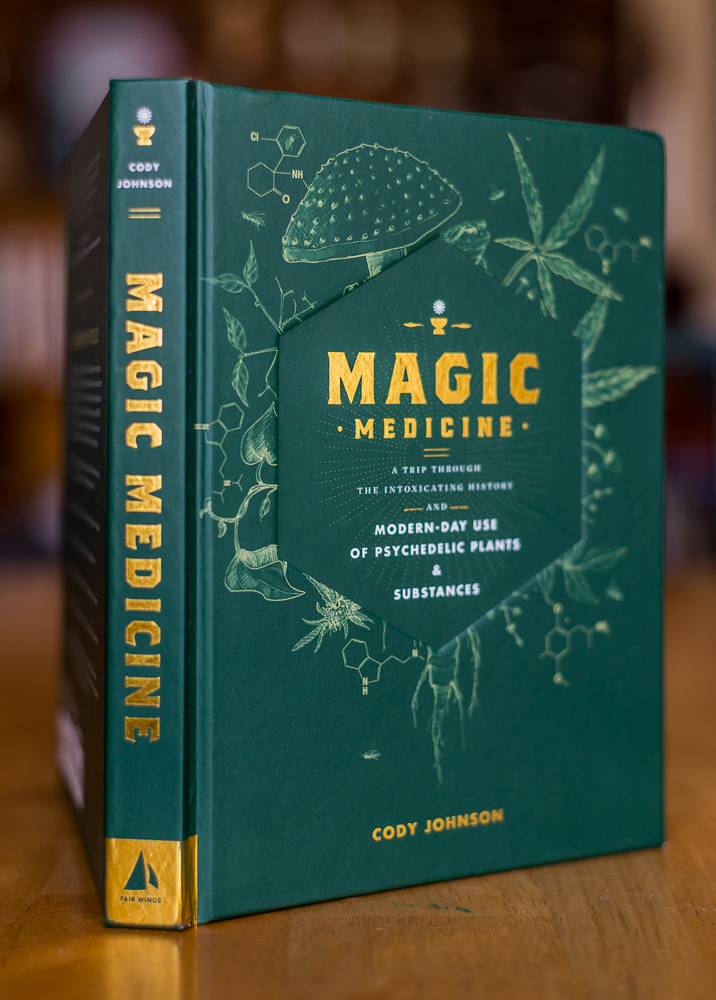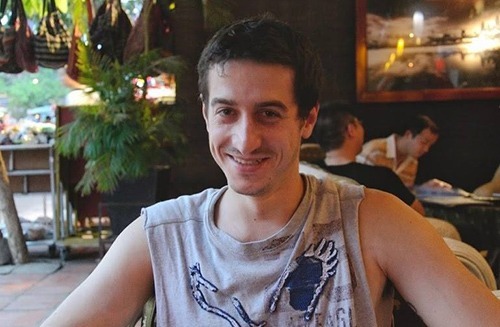
In a recent “Ask Me Anything” session on Reddit, Iraq War veteran Tony Macie opened up about how he overcame his treatment-resistant PTSD through experimental MDMA-assisted therapy. Here’s his introduction:
My name is Tony Macie, and I am a retired Sergeant of the U.S. Army. I spent 15 long months in Iraq during the surge in 2006 and 2007. When I returned home from the war, I was diagnosed with post-traumatic stress disorder (PTSD) resulting from a lot of issues ranging from what I experienced during combat and some of the disconnect with my brothers in arms when I transitioned out of the military.
My symptoms of PTSD became “treatment-resistant” after the medication and psychotherapy that the Veterans Affairs provided was ineffective. I began to search for alternative treatment methods, and that’s when I heard about the trial of MDMA-assisted psychotherapy to treat PTSD. After being accepted as a participant and receiving the treatment, I am proud to say that I am no longer on medications, I am able to more fully live my life, and my relationship with PTSD has changed completely.
I truly want anyone who is lost as a result from trauma to be able to have this tool at their disposal. MDMA-assisted psychotherapy opened the doors for me to compassion, love, and moving on. Instead of trying to forget experiences, I focus on learning from them. It also taught me to see the strength of trauma, but yet not forgetting my fellow veterans.
I am only one example of how this treatment can help people overcome PTSD. Studies around the world are gathering evidence suggesting that this treatment method can help people overcome treatment-resistant PTSD.
I’m doing this AMA to answer questions about my experiences, to bring attention to the need for more effective treatment methods for PTSD, and to spread awareness about how MDMA-assisted psychotherapy can help people heal trauma.
Tony’s treatment was funded by MAPS, the Multidisciplinary Association for Psychedelic Studies. If you’re interested in supporting this research, you can donate to MAPS.
This is a great opportunity to hear from someone who’s personally benefited from this MDMA-assisted therapy. Tony’s recovery is a remarkable story. I have collected his responses below for easy reading.
![]()
What does a typical session consist of and how does it differ from standard psychotherapy (other than the inclusion of MDMA)?
There is prior sessions about 90 mins to a couple hours with the doctor and therapist. These sessions are for them to explain to me what to expect. Also they go over some tools to use on relaxation. Another thing is they are getting to know me and my background. The day of the session I arrive in the morning. It is an all day thing and I have to stay the night. When I arrive I take the MDMA and lay down on the couch. For the first hour I have eye shades on and headphones listening to music. After the MDMA kicks in I took off my eyeshades and headphones to start talking.
I felt amazing. I slept good that night. I felt like a huge weight had been lifted off my shoulders
Standard psychotherapy does not have the ability that MDMA has in my mind to truly face trauma. MDMA give the user the ability to completely relax and trust their inner knowledge to guide them to do what is right. Normal therapy and medication only numbs me and I did not find any benefit from this. MDMA is not something you take every day. It is something you take a few times and have profound realizations that heal you. For me (not for everyone) standard therapy did not work because it was ongoing and the medications suppressed issues instead of bringing them up and fixing them.
What kind of music were you listening to?
I believe it was shamanic drum beats. It was not techno. It was music that was suppose to relax you along with bringing up emotion
Do you know what the dosage of MDMA was?
75mg
What encouraged you to finally change your mind about PTSD being a weakness and go seek help?
I didn’t truly accept it until the MDMA session. I was in complete denial because I didn’t want to admit I was totally out of control. Along with this I was sick of failing at life and wanted to change. It was a hard thing to face but I am glad I did.
Did any of your family or friends have any issue with you taking a known recreational drug? If so, how did you get them on board?
Great question. I had many people very skeptical about me participating in this trial. All the skepticism was due to the false narrative about the brain damage and association with the dangers of recreational use. The way I got them on board was thru explaining and educating them about the effects. Also that this was going to be in a controlled setting and not anything similar to recreational use. Along with that after I took it, I was living proof of how well it worked. It sounds cliche and hard to believe to some people, but I really went from abusing pain meds and being a zombie to stopping that after one sessions. This in it self speaks more than trying to educate my family and friends.
How often did you take MDMA? And what did you do when you were on it?
The MDMA I took was thru a legal government trial in South Carolina. I took one dose of it at a doctors office. The setting was more casual then a typical doctors office. I was on a couch with eye shades on and headphones for the first hour. The session lasted all day and for the first hour I just laid on the couch and let the MDMA kick in. After an hour when it took effect, I took off the eye shades and headphones. That’s when I started to talk to the Doctor and his Wife who is a nurse(it is a male and female couple which I think worked amazing for therapeutic value). For the remainder of the session I would go back and forth from talking to them to just sitting there with my eyes close and processing different memories. The MDMA gave me the feeling of everything is absolutely alright and a very clear ability to think and process trauma without fear.
What would be a piece of advice that you would pass onto others regarding your life experience so far?
I would say never give up and no matter how bad any situation or event can be there is always something positive you can take away. I use the strong emotion from trauma now as motivation instead of letting it bring me down. I want to honor the fallen by doing and making change, not by secluding and numbing myself out.
Was it more or less what you expected effect-wise?
It was a lot more powerful, I thought it was going to be similar to being drunk. I was wrong. It was very relaxing and my body felt very good. I had a back injury from my time in the military and after taking the MDMA was the first time I felt no pain. The lack of pain and extreme relaxation I felt truly allowed me to face any thought and deal with it. I remember when the MDMA kicked in saying out loud that this feeling of relaxation and peace had been what I had been seeking since I returned from war.
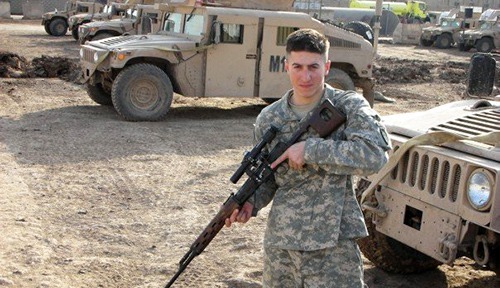
I’m curious if the doctor and nurse tried to guide you at all during the treatment… Can you say a bit more about the experience of being in the room on the medication?
The doctor and nurse did not try and guide me into talking about anything unless I brought it up. They were more there to help me process memories and for support. The thing that they both reiterated was that I was my best guide and to trust myself. I believe this to be very effective because I think that we all know what is best for ourselves.
As for my experience in the room on the medication, it was very rewarding. I remember when the MDMA kicked in it was like a paradigm shift. I went from the strong anxiety and negative feelings to a wave of pleasure and feeling at peace instantly.
Did MDMA affect your anxiety levels at all?
When the MDMA was kicking in I felt a spike in my anxiety. I was told before the session that this is normal and I was expecting it somewhat. After I just let go and went with the MDMA I did not feel any anxiety for the rest of the session. After the session I did not have any anxiety and slept very good that night. From there on my anxiety was not an issue compared to where it was at before.
Do you feel that MDMA would only be useful as a treatment in a clinical setting?
I believe that from my experiences and the data from the study that MDMA will be very beneficial in a clinical setting for treatment resistant PTSD. I do not think it is beneficial for people to try and find MDMA illegally and try and use it therapeutically. I believe there is a lot of risk in this and would not recommend it at all. I think that it is important to have trained doctors and therapist to interact with during the MDMA session to be most effective.
Would you ever consider using mdma or other psychoactive substances recreationally (assuming recreational use is made legal) after your experience or do you consider it as purely a rehabilitative tool?
I am very glad you asked this question because I think it is important for me to clarify my stance on this. I personally would not use this recreationally and only see it as a rehabilitative tool.
I don’t mean to open closed doors, but what used to keep/wake you up before the military, during your service , during PTSD as opposed to now?
Hey, thank you for the good question. I use to have a really hard time falling asleep and letting my guard down on returning from the war. I was in a constant state of hyper-vigilance and from being in combat I was use to staying alert at all times. It became a habit for me to not allow myself to fall asleep because I couldn’t do that in a combat zone. When I came home this was how my mind operated still along with the memories of my friends who had passed away over seas. A lot of nights I would irrationally role play how I could go back in time and try and save them or how I could redo a certain situation. Now I realize that this was just me not wanting to accept their death and was my way of holding on to that. I have come to peace with these things and now realize that it is in the past and there is absolutely nothing I can do about it and to just be in the now.
What exactly about the experience with MDMA allowed you to resolve the conflicts within yourself? Was there an ‘a-ha’ moment during it or more of a gradual coping process?
I would say that it was the feeling of an “a-ha” moment, but over the period of the session I had many. Each issues would come up and it would be so clear and obvious on how to handle it to me. This happened repeatedly for the entire session, if that makes since?
The difference for me was my ability to feel comfortable and find true closure in issues. It was such a relief to truly let things go and learn from them. It was like my mind before was punishing me and keeping me in a constant state of hell. I was not allowing myself to move on and was my own worse enemy. Recognizing this and allowing myself to be vulnerable opened the doors for me to process these traumas and move on.
Did you feel any kind of bond with [the therapists]? … How specifically did the fact that they’re a couple help?
I certainly felt love and a feeling of peace during the session. I was more open to talking about things and just accepted everything for what it was. I believe the fact that there was a male and a female was more important then them actually being a couple.
[I heard] about a program in England (I think) where soldiers are trained to discuss traumatic events as soon as they are in a safe zone. The idea is that if given the opportunity to discuss experiences that have been proven to increase the likelihood of developing PTSD in an established safe zone, the incidence of PTSD would decrease. Studies have shown that this program is effective. What are your thoughts on this?
It is hard for me to say. I was very closed off when I came home and was more interested in drinking and partying then facing any issues. I think if it was something we all had to do on returning then I would have benefited from it. Especially if I saw my leadership and people I served with delving into their issues and dealing with them, I would have been more likely to do it. It’s hard for me to say if the US should implement a program like that without going thru one myself and without being a professional in the field. Simple answer though is if it benefits soldiers then yes I think it should be implemented. Anything that benefits soldiers returning from combat to help them transition should be implemented and an option available.
Was there any “fun” to it or was it all business?
There was a period for the first hour where it was “fun”. I just relaxed and felt at peace for the first time from coming home from war. This relaxed at peace feeling lasted for another 2-3 hours, but also then I started to have to process trauma.
Would you say this MDMA treatment is helpful for all PTSD sufferers? Or are there soldiers who respond well to “traditional” treatment?
The question of is MDMA treatment helpful for all PTSD sufferers is a difficult one for me to answer, since everyone is different. I believe from my experience it can help anyone with severe trauma because of how it works. It gives you the ability to relax completely and still be clear minded. I believe it is important to allow further research done to confirm that it works well for most people with treatment resistant PTSD. In the trial to be accepted you have to be treatment resistant, which means the “traditional” treatments do not work.
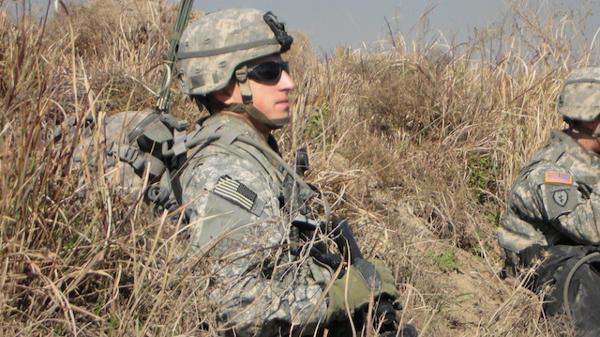
Have you ever taken MDMA before this?
I had no prior experience with MDMA before the trial.
Would you say you’ve experienced any side effects since then that you would attribute to MDMA?
For side effects I did not experience anything significant. I did not have a MDMA comedown like people talk about, if anything for 2 or 3 weeks I felt very good. After I took the MDMA it made me realize that I was dependent/addicted to my prescription pain killers. I stopped taking them that day because during the MDMA session I had the realization that I was killing myself by abusing them. Now it is a couple years later and I still do not take any pain killers and have stopped taking all my prescription meds. So only real side effect for me was coming out of my depression and owning my PTSD.
How many medicated sessions did you have?
I only took one session of the MDMA. I had the option to take another, but decided to just go into the session and do the talk therapy. I choose this route because after the first session on MDMA I had a huge opening and felt like it was important for me to take back control of my life and stop taking pain killers and other meds. It was therapy in itself for me to go into the sessions after the MDMA and talk about my experience. Not under the MDMA I was able to continue to talk and process things effectively.
So I only took the MDMA once and it was 75mg. There was no need to build up the dose or wean me off because it is just one session. If I would have wanted to take the MDMA again the next session would have been a month later. There was no “comedown” and no real side effects that I experienced.
Do you see MDMA as a temporary relief or an overwhelming change in practical fear? When were you able to discern that the drug was effective after use?
I see it as an overwhelming change in practical fear. It dissolves the ego and reveals the illogical patterns that my brain had created. For me I realized that for 15 months in combat I did need to be very aware and also make connecting with certain things to save myself and others. When I came back though these things were not helpful at all, they actually were ruining my life. I was able to discern this during the session immediately. It made me face myself and come to terms with exactly what I was doing to self destruct. Along with this I came to terms with how to solve these issues and act them out.
Do you think that anything could change the attitudes to mental health issues in society and the media?
Yes. Public education on the topic without fear based tactics. Allowing research to be done to prove how effective these things are.
What was your personal experience being on MDMA?
My personal experience of being on MDMA was very profound. It is hard to put in words sometimes. I believe that during the session I connected with a place deeper than words and was able to process emotions. To me it was memories coming up and if I tried in the beginning to push them away like I was use to doing, I would feel anxiety. After I would go into the memory and allow it to come up and process it, I would feel a wave of pleasure. For me this was my way of teaching myself not to store or suppress these things anymore and just to trust myself. If I was thinking about it or it was coming up, it must be because I am ready to face it and move on. One big realization I had was that I was holding on to my friends deaths as a power control for me. By this I mean I was keeping myself in suffering because I did not know how to honor them and did not want to accept the fact that they were gone. The session helped me come to peace with this along with other things. It wasn’t pretty or fun realizations, but they were life changing for the better.
What was your initial reaction when you were first told about this treatment?
I was skeptical at first because I had preconceived notions about how harmful it was for me. After reading and learning about it, I felt the benefits out weighed the risks and am glad I did it.
Do you think you will have to continue with this therapy periodically throughout your entire life? Have you met other vets who have treated their PTSD with alternative psychoactive compounds such as DMT or psilocybin? If so, did they have positive results?
If I reach a point where I was to start drinking a lot again of have some sort of trauma I would use this therapy. It has been 3 years and I haven’t had to which is very promising. I have met vets who have benefited from Psilocybin, DMT, and LSD. I have also met vets who had a bad experience with it. I believe it has a lot to do with the setting and thats why I think it is important to get these things off the streets and allow the dr’s to use them.
How did you feel after the effects wore off (physically and emotionally)?
I felt amazing. I slept good that night. I felt like a huge weight had been lifted off my shoulders. I was happy for the first time in a long time and if anything excited about life again.
Were you warned about any type of addictions beforehand?
There was no addiction to the MDMA. It broke me out of my cycle of addiction with pain meds.
How long has it been since your last dose of MDMA?
It has been 3 years now. I don’t see myself reverting back and think that it has life long learning lessons for me. Maybe the therapy aspect is what helped me hold on to my insights for such a long time.
Can you explain to me exactly what your PTSD did to you?
I disconnected from all relationships and numbed myself with pills. Along with this I was hiding from myself and not wanting to admit I had given up. I didn’t want to accept the fact that people had died and I didn’t know how to honor them.
Are you religious, and if so, did it contribute to your recovery in concert with the therapy?
I would say I am spiritual not religious. I did not have a mystical experience like people report having on Psilocybin or LSD. I did have an experience of complete understanding of myself and love. I don’t claim a specific religion though. I do however believe that there is a higher power or something beyond myself.
Are you at all worried about dependence or addiction?
I am not worried at all about dependence or addiction, it has been a couple years since my session and I do not seek or crave it. I have never had any sort of dependence or addiction to MDMA, only pain killers.
How did you find out about MDMA- assisted psychotherapy, and when did you start to notice a change in your mentality/behavior?
I found the study after learning about MDMA thru the internet as an alternative for PTSD. I was going to school at the time in South Carolina where the study is and just happened to get in. I am very grateful that things worked out like they did. I noticed a change immediately. Along with that I have noticed over the years a huge change with not being dependent on any meds or taking any. Also going back to the learning lessons of that trial to deal with stressors in my daily life. It was something that will benefit me for the rest of my life.
Liked this post? Subscribe to my RSS feed to get much more!

